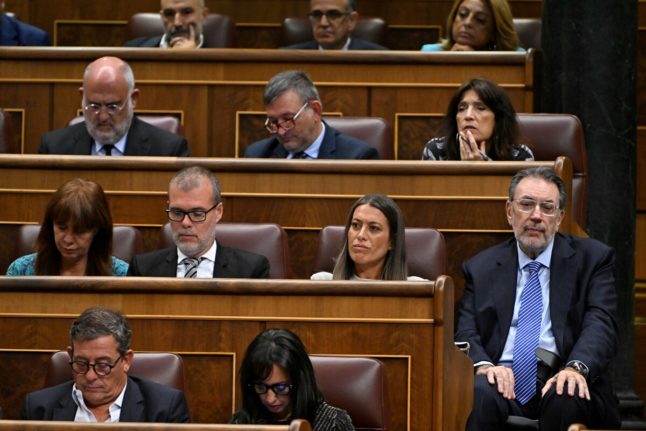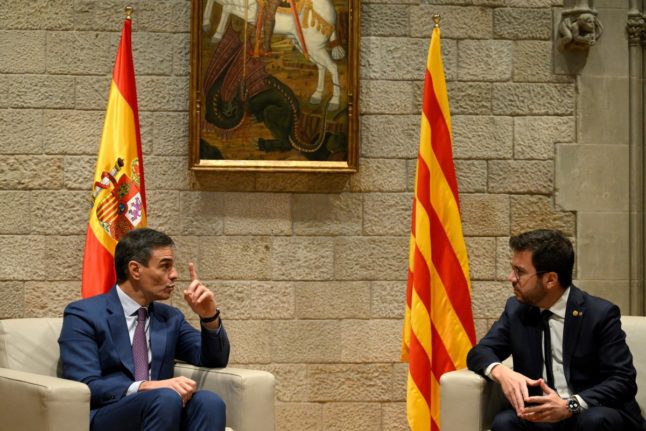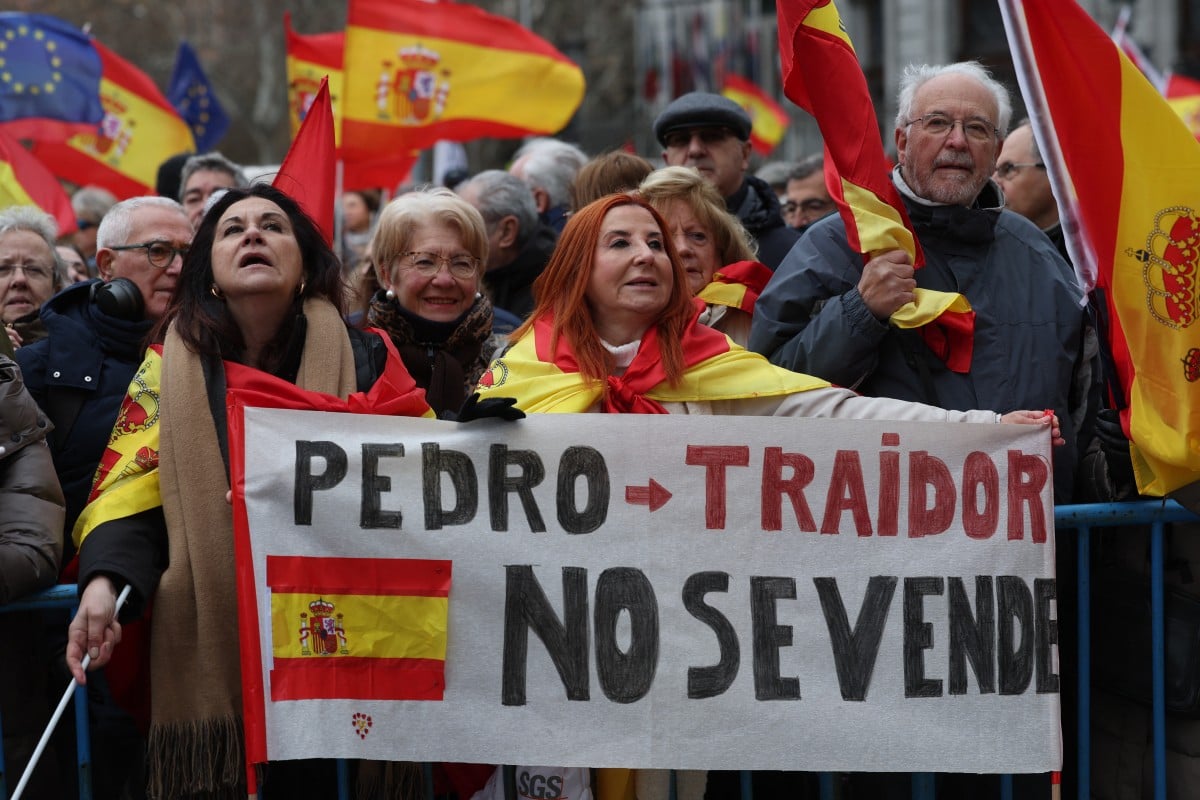Last week, during the first key parliamentary vote of the new legislature, Sánchez was forced to seek support from the hardline JxCat to pass three decrees, including a critical measure to help households cope with rising inflation.
In exchange for JxCat’s seven votes, Sánchez agreed to transfer responsibility for migration issues to the regional government of this wealthy northeastern area that borders France.
Spain’s 17 regions enjoy wide powers, notably over education and healthcare, but migration issues are normally handled by the central government.
JxCat has said the deal involved a “comprehensive” handover of powers on migration, but Sánchez said border management and illegal immigration would remain in the state’s hands with the new powers relating to jobs and social integration policies for immigrants.
Even though the details have yet to be laid out in a text that must be approved by parliament, the matter has provoked an angry reaction from the police, Spain’s right-wing opposition and even radical left members of Sánchez’s Socialist-led coalition.
Spain’s largest police union, Jupol, accused Sánchez of using the police, who are responsible for handling issues regarding migration and foreign nationals, “to yield to pressure from the Catalan separatists”.
And right-wing opposition leader and Popular Party head Alberto Núñez Feijóo on Monday lambasted Sánchez for “transferring migration policy” to “a party that Sánchez himself” has branded “xenophobic”.
Feijóo was referencing remarks by Sánchez in February 2021 when he accused certain candidates who were running for JxCat in the regional elections, of using the language of “hatred and xenophobia” akin to that of the far-right.
One of the candidates, who ended up stepping down, had spoken about “cleaning out the Spaniards” from Catalonia.
In May 2018, Sánchez called then Catalan leader Quim Torra the Jean-Marie “Le Pen of Spanish politics” in reference to the founder of France’s far-right National Front, now the National Rally, for his “racist and xenophobic statements” about the superiority of Catalans over other Spaniards.
More recently, left-wing elements have been angered by JxCat’s leaders for saying Catalonia should have the power to ban immigrants with a criminal record who reoffend.
JxCat was crucial in getting Sánchez re-elected for a new term in November following an inconclusive July election, but it means the premier, who heads a minority government, needs its support — and that of various other regional parties — to move legislation through parliament.
In exchange for their seven ‘yes’ votes in November, Sánchez agreed to push through a controversial amnesty law for those wanted by the justice system in connection with the failed 2017 Catalan independence bid.
That pledge infuriated Spain’s right-wing opposition but also angered some of Sánchez’s Socialists.
And this latest deal over migration competencies has also been criticised by Sumar, the radical left-wing platform that is part of Sánchez’s ruling coalition.
This agreement feeds “xenophobic statements which should stay outside of the public debate,” said Sumar spokesman and Cultura Minister Ernest Urtasun said on Monday.
Immigration has been a hot potato in Catalonia since May 2023 when Silvia Orriols — candidate for the hardline separatist anti-immigration Alianza Catalana — was elected mayor of the northern town of Ripoll.
In asking for greater control over migration, JxCat “is trying to stop Alianza Catalana and Orriols from stealing its votes,” the region’s interior ministry Juan Ignasi Elena told a local radio station.
The region is currently run by the more moderate separatist ERC party.
He said the remarks about banning immigrants with a criminal record who reoffend grew out of JxCat’s “associating” immigration with delinquency.
Sánchez hit back on Sunday.
“I absolutely cannot agree with anyone who identifies or equates migration with delinquency,” Sánchez told El País daily in an interview, stressing that his government had “a humanist migration policy”.





 Please whitelist us to continue reading.
Please whitelist us to continue reading.
Member comments